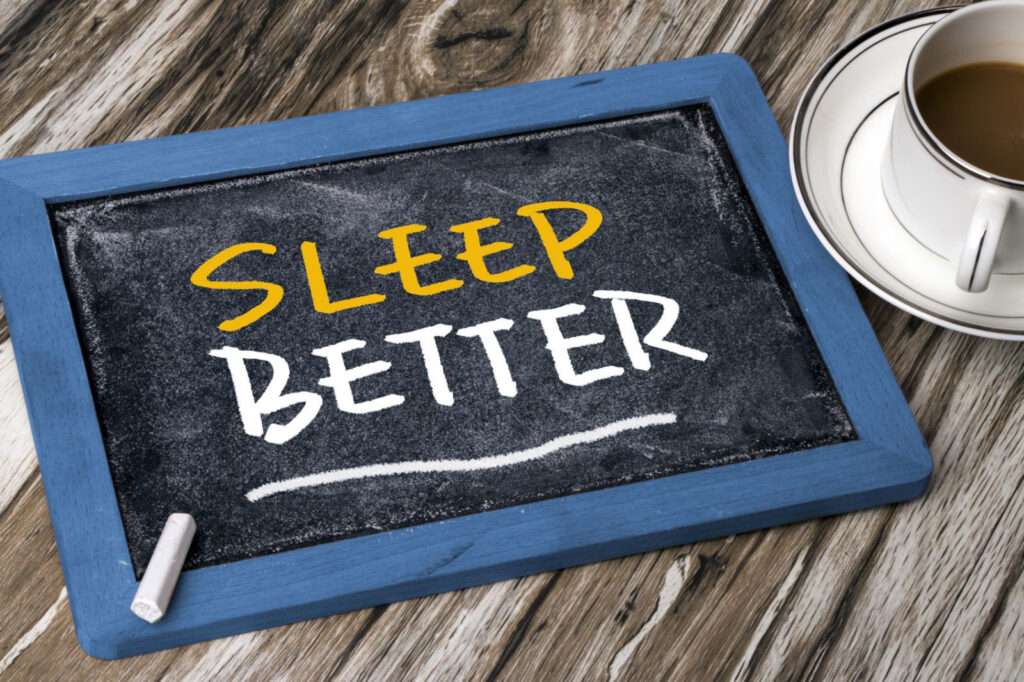Quiz Results
Thank you for taking the time to complete our mental health quiz. At American TMS Clinics, we’re committed to guiding you through understanding your assessment results and exploring effective treatment options that can significantly enhance your well-being.
CALL US TO GO OVER YOUR RESULTS!
Did you know that talking to someone supportive for just 5 minutes can help you feel better? Let's talk over your results.
About TMS Therapy
Transcranial Magnetic Stimulation (TMS) therapy is a groundbreaking, FDA-approved treatment for depression. This innovative therapy uses magnetic fields to target specific areas of the brain involved in mood regulation, offering a non-invasive alternative for those seeking new solutions beyond traditional depression treatments. TMS therapy has been clinically proven to effectively alleviate symptoms of depression, especially in instances where medication and psychotherapy have not yielded the desired outcomes.
Who We Are
We are American TMS Clinics, a dedicated TMS clinic passionately serving the community from our location at 5020 E Shea Blvd Suite 120, Scottsdale, AZ 85254. Our experienced team specializes in leveraging TMS therapy to assist individuals in navigating and overcoming mental health challenges. Whether you’re considering treatment options for depression or are curious about the potential benefits of TMS for your situation, we invite you to reach out.
Interpreting Your Assessment Results
Based on a PHQ-9 like scoring system you’ve completed, here’s a brief overview of what your score might suggest about your current mental health state:
- 0-4: This score can indicate minimal depression. Regular self-care practices and mindfulness could be beneficial in supporting your mental well-being.
- 5-9: This score can indicate mild depression. It may be helpful to explore various support options that can assist in managing your symptoms.
- 10-14: This score can indicate moderate depression. Consulting with healthcare professionals can be important to identify effective strategies for addressing your symptoms.
- 15-19: This score can indicate moderately severe depression. A discussion with a healthcare provider to outline a comprehensive plan is crucial for effectively addressing your mental health needs.
- 20-30: This score can indicate severe depression. Immediate consultation with a mental health professional is strongly recommended to determine suitable interventions for relief and support.
CALL US TO GO OVER YOUR RESULTS!
Step towards reclaiming your life with our support. Unveil the possibilities with our therapies in Scottsdale, AZ. Call to unfold your path to wellness.
Please Note:
This assessment and its results are intended for informational purposes only and not to diagnose or treat any medical conditions. The interpretation of your results should not replace professional medical advice, diagnosis, or treatment. If you’re experiencing distress or symptoms of depression, we strongly encourage seeking advice from qualified health professionals who can provide personalized care based on a comprehensive assessment of your needs.
We understand that dealing with depression is challenging, but you don’t have to face it alone. Our clinic is ready to support you with state-of-the-art TMS therapy and personalized care. For more information or to discuss your treatment options, please don’t hesitate to reach out to us.
Understanding and addressing feelings of depression is crucial for mental health and well-being. Depression is a common but serious mood disorder that affects how you feel, think, and handle daily activities. It’s important to recognize the signs of depression, which can vary in severity and impact on life.
Feeling Down, Depressed, or Hopeless
If you've been feeling down, depressed, or hopeless over the past two weeks, it's significant. These feelings are central indicators of depression, reflecting a negative shift in your emotional state that can affect your ability to function and enjoy life. Acknowledging these feelings is a critical first step towards seeking help and finding treatment.


Thoughts of Being Better Off Dead or Self-harm
Having thoughts that you would be better off dead or of hurting yourself in some way is a serious concern that requires immediate attention. These thoughts can be signs of severe depression and indicate a high risk for self-harm. It's crucial to reach out for support from mental health professionals, loved ones, or emergency services if you're experiencing such thoughts. Remember, help is available, and there are people who want to support you through this.
Seeking Help
Depression is treatable, and a wide range of resources are available to assist you on your journey toward recovery. Treatment options include therapy, medication, lifestyle changes, and support groups. If you’re experiencing feelings of depression or thoughts of self-harm:
- Reach out to a mental health professional: A therapist or psychiatrist can offer a diagnosis and craft a treatment plan tailored to your specific needs.
- Talk to someone you trust: Opening up to a friend, family member, or trusted colleague can bring immediate relief and provide ongoing support.
- Contact a helpline: Call 1-800-273-TALK (1-800-273-8255) or Text “HELLO” to 741741. Available 24/7 or use the Crisis Text Line: Text “HOME” to 741741. Connect with a crisis counselor anytime.
Why Consider TMS Therapy?
Non-Invasive and Non-Medication
Evidence-Based Results
Minimal Side Effects
Give Us a Call
If you're considering your options for treatment, our team is here to assist. We can help by checking your insurance coverage, determining if you qualify for TMS Therapy, arranging a formal evaluation for depression, or simply offering a listening ear.
Taking the first step towards recovery can be challenging, but you don't have to do it alone. Contact us today; we're ready to support you on your path to better mental health.
TIPS FOR FEELING BETTER
Why Being Active is Important for Fighting Depression:
Engaging in physical activity is crucial in the battle against depression. It not only boosts endorphins, which improve natural immunity and elevate mood, but also can act as a form of meditation in motion, helping to break the cycle of negative thoughts that feed depression. Regular exercise has been shown to reduce stress, enhance sleep, and increase self-esteem. Minimal increases in activity can lead to significant improvements in mental health. Exercise also promotes a variety of other benefits crucial for those fighting depression:.
Enhances Sleep
Increases Energy Levels
Improves Self-esteem
Provides Social Interaction
For Those Highly Active
Congratulations on maintaining a high level of physical activity! Your commitment is playing a significant role in supporting your mental health and resilience against depression. Staying active not only keeps your body healthy but also contributes to a healthier mind by providing a natural and effective way to combat the symptoms of depression.
Tips for Improving or Maintaining High Activity Levels:
- Keep varying your routine to stay engaged and prevent boredom.
- Remember the importance of rest and recovery to prevent burnout.
- Continue to set new challenges to keep your motivation high
For Those Looking to Increase Activity
Tips for Becoming More Active:
If you’re not as active, getting started can seem daunting, but even small changes can have a profound impact on fighting depression.
Start Small
Find Activities You Enjoy
Build Gradually

Are You Feeling Lonely?
Managing depression effectively often hinges on the support system surrounding you. Whether you feel well-supported or find yourself grappling with feelings of isolation, understanding your current support landscape can guide you towards improved mental health and well-being.
If You Feel Supported, That's Great!
A strong support system is invaluable to fight depression. Continue to nurture these connections and communicate your needs to maintain this positive environment.

For Those Feeling Isolated
Join Activities
Open Up to New People
Use AI Chatbots
Getting Good Sleep Can Be Easier Said Than Done
Sleep is fundamental to maintaining both physical health and mental well-being, influencing mood, energy levels, cognitive function, and overall health.

Good Quality Sleep Is Important
- Keep a consistent sleep schedule, even on weekends.
- Ensure your sleep environment is conducive to rest, being cool, quiet, and comfortable.
- Continue with positive bedtime rituals, such as reading or meditation, that signal to your body it’s time to wind down.
If You Get Poor Quality Sleep
- Establish a Regular Sleep Schedule: Consistency reinforces your body’s sleep-wake cycle.
- Optimize Your Sleeping Environment: Make your bedroom a haven for sleep—dark, quiet, and cool.
- Limit Exposure to Screens: The blue light from phones and computers can interfere with your ability to fall asleep.
- Mind Your Diet: Avoid caffeine and heavy meals in the evening.
- Incorporate Relaxation Techniques: Activities like deep breathing, yoga, thoughts of gratitude, or meditation can help prepare your mind for sleep.

Health Insurance and Treatment Options
Navigating mental health treatment options, including those for depression, involves understanding the role of health insurance, Medicare, and Medicaid in covering costs. This understanding is crucial for accessing treatments like TMS (Transcranial Magnetic Stimulation), medication, and therapy. Here’s a comprehensive breakdown:
Yes, I Have Health Insurance
No, I Do Not Currently Have Insurance
I Have Medicare / Medicaid
Medication and Therapy
These are widely covered treatments under most insurance plans, including Medicare and Medicaid. Consulting a mental health professional is essential to explore these options tailored to your needs. We do not provide medication management at this time but if this is a treatment option you’re looking for we can help point you in the right direction.
When exploring treatment options for depression, especially when traditional medication hasn't been effective, TMS (Transcranial Magnetic Stimulation) therapy presents a promising alternative. It's a non-invasive procedure that uses magnetic fields to stimulate nerve cells in the brain involved in mood control and depression. However, understanding the financial aspects of TMS therapy is crucial, as coverage and costs can significantly influence your ability to access this treatment.

TMS Therapy and Insurance Coverage
Insurance Variability
Medicare and Medicaid
Out-of-Pocket Expenses
Financial Assistance and Planning
If you’re considering TMS therapy for depression, especially if traditional medications haven’t been effective, don’t let the uncertainty of insurance coverage stand in your way. Give us a call at American TMS Clinics. Our knowledgeable staff will work directly with you and your insurance provider to verify your coverage and discuss potential out-of-pocket costs or financial assistance options that may be available to you.We Can Help You See If You’re Covered

Contact Us Today
Take the first step towards understanding your treatment options and ensuring that financial concerns are addressed. Contact American TMS Clinics at [Your Phone Number] to start the conversation about your insurance coverage for TMS therapy. Our goal is to support you on your journey to improved mental health and well-being.
Let’s navigate this path together.
Give us a call today
American TMS Clinics
(602) 922-0960
5020 E Shea Blvd Suite 120, Scottsdale, AZ 85254
